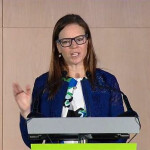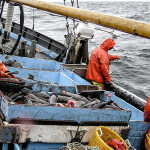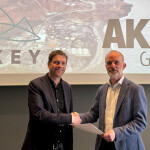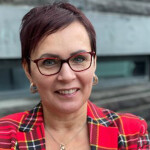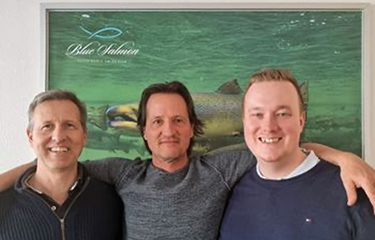Zürich, Switzerland-based Swiss Blue Salmon has plans to take advantage of the advancements in the development of recirculating aquaculture systems (RAS) to farm salmon in the landlocked country.
A partnership with RAS specialists Billund Aquaculture will enable the company to build what it has dubbed the “world’s smartest RAS farm. The eventual goal is to create a local aquaculture industry and reduce Switzerland’s reliance on seafood imports, Swiss Blue Salmon Founder and CEO Rudolf Ryf said.
“One of my original motivations for creating this company was to address the seafood trade deficit in Switzerland, where almost all fish (98 percent) is imported, and this does not help the carbon footprint of seafood consumption in the country,” he said.
Swiss Blue Salmon Chief Technology Officer Sune Møller told SeafoodSource that the plan is to produce 3,400 metric tons (MT) of salmon per year in a RAS system that incorporates the latest technological advances in artificial intelligence (AI), machine learning, cloud solutions, digitalization, big data and analytics, advanced camera and sensor systems, and automation.
“All raw data generated by the farm will be uploaded to a cloud-based platform and from there, we can share it with strategic partners like Billund to analyze and come up with new ideas and solutions,” Møller said. “We believe that smart farming will prepare the ground for a sustainable and efficient way to produce healthy fish.”
A Danish mechanical engineer, Møller spent more than four years with Billund, then headed up construction of the Kingfish Zeeland RAS farm in the Netherlands before joining Swiss Blue in October 2021.
Møller said the Swiss Blue farm design will use renewable energy, mainly in the form of hydropower and solar panels, and focus on low energy consumption. He said transportation costs can also be kept to a minimum, as the target market for the salmon is in-country.
Swiss Blue Salmon will seek to add value to the fish by filleting and smoking in-house, and will ensure that waste streams are upcycled, Møller said. Waste from the farming processes will be turned into fertilizer or used in a local biogas plant, and processing waste will be used for pharmaceutical-grade products, food for human consumption, or pet food.
Møller said that for the immediate future, the focus is on raising funds, obtaining permits, and working on the design of the farm.
“The idea is to start construction of the farm next year and to start harvesting fish in 2026. The hatchery and pre-smolt facility will be constructed first, then grow-out facilities, followed by on-site primary and secondary processing,” he said.
The company has already raised CHF 900,000 (USD 962,000, EUR 878,000) in seed funding to carry it through the planning phase, and is seeking Series A funds to facilitate the permitting and Series B for the execution.
“We are looking as wide as possible and are talking to private equity, family offices, large investment funds, [abd] sustainable ocean funds,” Møller said. “The main thing for us is that investors share the same passion for the environment and sustainability as we do, and so far, we have gained a good level of interest from everyone we have contacted.”
The company has started discussions with major feed suppliers to learn about specialty RAS feed, and is hoping that it will be able to raise the salmon on a diet free from forage fish by using feed alternatives such as insects, algae, yeast, and single-cell protein.
The fish farm will have an observation deck and visitor's center for schools, companies, and groups, to enable them to learn about RAS farming and see the high levels of animal welfare and hygiene standards employed on the farm. The aim is to run a transparent operation that builds confidence in the sustainability of the industry, improves consumer perceptions of farmed salmon, and raises awareness about the nutritional value and health aspects of salmon, Ryf said.
“We also want to strengthen ties with local universities, contributing to knowledge creation and the hiring of specialists for this project and its future farming operation,” Ryf said.
Billund Aquaculture COO and Business and Development Manager Bjarne Hald Olsen said the project represents a significant step forward towards the creation of a sustainable Swiss aquaculture industry.
“We are very pleased to enter this strategic partnership with Swiss Blue Salmon,” he said.
Photo courtesy of Swiss Blue Salmon

